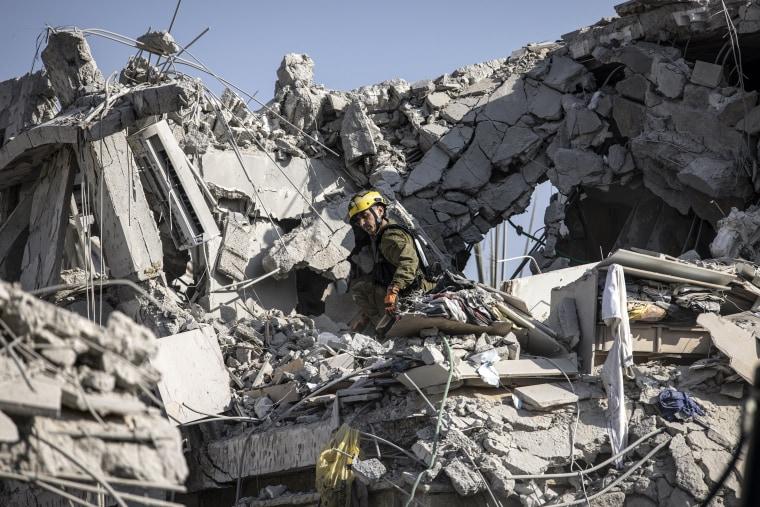Democratic Party Faces Growing Challenges Amid Israel-Iran Conflict
Internal Divisions and Foreign Policy Complexities Within the Democratic Party
The intensifying hostilities between Israel and Iran have placed the Democratic Party in a precarious position,compelling its members to carefully navigate a multifaceted geopolitical crisis. Progressive Democrats emphasize diplomatic solutions and caution against military escalation, while centrist and establishment figures advocate for robust support of Israel’s security interests. This ideological rift underscores the party’s struggle to forge a unified foreign policy approach, contrasting with the more cohesive stances seen in past international conflicts.
Core challenges shaping the party’s dilemma include:
- Reconciling security priorities with humanitarian concerns: Democrats grapple with endorsing Israel’s defensive actions against Iran-backed factions while addressing the humanitarian toll on Palestinian populations.
- Preserving strategic alliances: The conflict tests U.S.commitments to NATO and Middle Eastern partners, influencing broader geopolitical strategies involving Russia and China.
- Managing domestic political pressures: Diverse constituent views and advocacy groups push elected officials toward varying positions on sanctions, negotiations, and military assistance.
| Democratic Group | Approach to Foreign Policy | Possible Consequences |
|---|---|---|
| Progressive Wing | Emphasizes diplomacy and conflict de-escalation | May be perceived as insufficiently strong on defense |
| Moderate Members | Advocate firm backing of Israel’s security | Risk alienating peace-focused activists |
| Party Establishment | Seeks balanced mix of sanctions and dialog | Difficulty achieving party-wide consensus |
How Middle East Tensions Influence U.S.Domestic Politics and Election Strategies
The ongoing Israel-Iran confrontation is reshaping the Democratic Party’s domestic political calculations amid an increasingly polarized electorate. With voters holding divergent views on America’s role in Middle Eastern conflicts, party leaders must balance assertive foreign policy with growing demands for diplomatic restraint. This balancing act is especially evident as the party prepares for critical midterm elections, where progressive calls to end prolonged military engagements clash with moderate priorities emphasizing national security and alliance loyalty.
Campaign strategists are recalibrating their approaches by considering:
- Allocating defense and intelligence budgets carefully to avoid endorsing unilateral military actions.
- Crafting messaging that supports Israel’s right to security while promoting constructive dialogue with Iran.
- Engaging with influential Jewish and Arab-American communities whose votes could sway close races.
- Countering Republican narratives that portray Democrats as weak on defense.
| Electoral Factor | Level of Influence |
|---|---|
| Public Opinion on U.S. Military Engagement | High |
| Role of Ethnic Community Leaders | Moderate |
| Opposition Messaging on National Security | High |
| Media Portrayal of U.S. Involvement | Moderate |
Navigating the Tightrope: Supporting Israel While Pursuing Diplomacy with Iran
The Democratic Party confronts a delicate foreign policy challenge: upholding unwavering support for Israel’s security while simultaneously advocating for renewed diplomatic engagement with Iran. This balancing act has intensified internal debates, as the party seeks to address Israel’s defense needs alongside pragmatic efforts to curb Iran’s nuclear ambitions. Key policy tensions include:
- Preserving Israel’s qualitative military advantage amid regional volatility.
- Reducing the risk of escalation through dialogue and calibrated sanctions relief.
- Addressing human rights issues without jeopardizing critical alliances.
These competing priorities are further complex by domestic political dynamics, where the Democratic base encompasses both fervent Israel supporters and advocates for a more conciliatory approach toward Iran. Crafting a coherent policy requires nuanced leadership, especially as lawmakers prepare for pivotal debates that could redefine U.S. engagement in the Middle East.
| Policy Area | Democratic Challenge | Likely Outcome |
|---|---|---|
| Military Assistance to Israel | Balancing budgetary limits with security demands | Strengthened defense ties amid fiscal debates |
| Negotiations on Iran’s Nuclear Program | Restarting talks without enabling nuclear advancement | Potential diplomatic progress with political risks |
| Regional Stability Initiatives | Aligning allied interests while promoting peace | Gradual improvements amid complex alliances |
Strategic Pathways for Democrats Amid Complex Global Alliances
To effectively manage the dual imperatives of supporting Israel’s security and limiting Iran’s regional influence,Democrats must emphasize multilateral diplomacy.Collaborating closely with NATO partners and Middle Eastern allies is essential to present a cohesive front. Recommended strategies include:
- Facilitating discreet negotiations between Israel and moderate Arab nations to marginalize extremist factions.
- Enhancing intelligence-sharing frameworks that strengthen counterterrorism efforts while protecting civil rights.
- Implementing targeted economic incentives to encourage Iran’s compliance without overlooking human rights concerns.
Simultaneously, the party should develop messaging that appeals to both pro-Israel advocates and proponents of diplomatic engagement, clearly communicating the complexities involved. This approach will reinforce U.S. commitments to security alliances while promoting sustainable peace efforts.
| Policy Focus | Immediate Objective | Long-Term Aim |
|---|---|---|
| Diplomatic Initiatives | Establish new regional partnerships | Achieve lasting Middle East stability |
| Security Collaboration | Improve intelligence cooperation | Develop trust-based alliances |
| Economic Measures | Offer sanctions relief contingent on compliance | Integrate Iran into the global economy |
Conclusion: Navigating a Pivotal Moment for the Democratic Party
As the conflict between Israel and Iran escalates, the Democratic Party faces a multifaceted and politically sensitive challenge. Balancing national security priorities with the diverse views of its domestic constituencies requires strategic finesse. The party’s response in the coming weeks will not only shape U.S. foreign policy in the Middle East but also influence internal cohesion and electoral outcomes. With tensions unlikely to abate soon, the Israel-Iran crisis remains a defining issue demanding thoughtful leadership and clear strategic direction.
